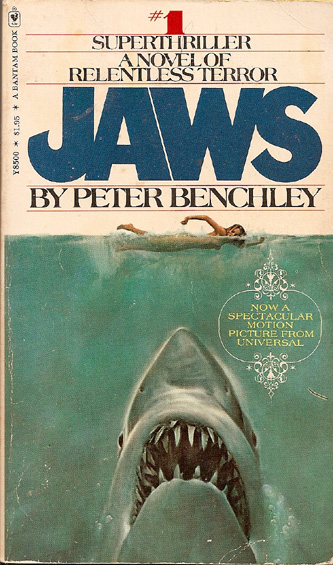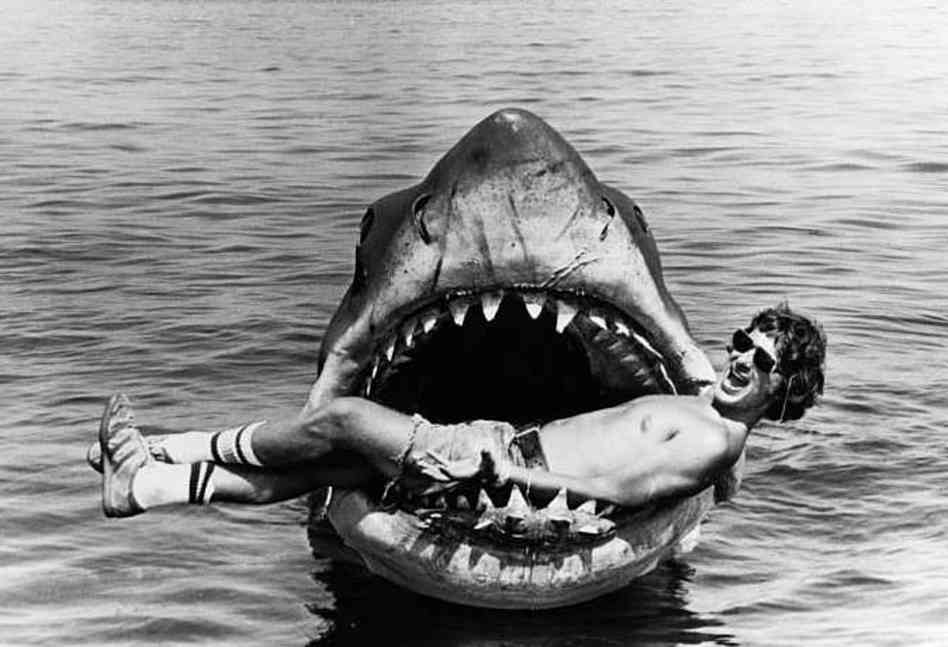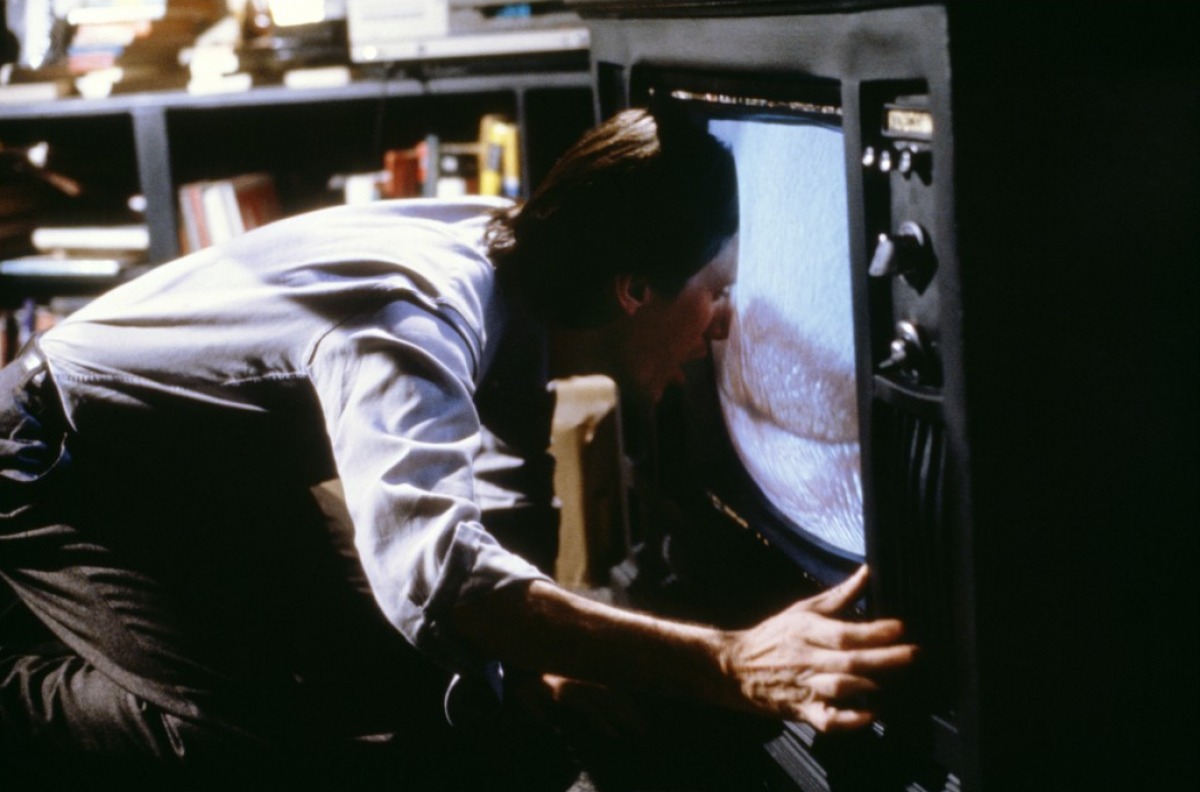Here’s a rarity: Peter Benchley, author of Jaws, in a part of the preview featurette promoting the novel’s 1975 big-screen Spielberg adaptation, which changed so much about Hollywood filmmaking, pretty much creating the summer blockbuster season. The novelist interviews the director as well as producers Richard Zanuck and David Brown.
You are currently browsing articles tagged Steven Spielberg.
January is the graveyard for movies that turned out to be turkeys, a month for studios to clear the slate. But it wasn’t always that way. Summer used to be the season to forget. That changed because a beach-themed film wanted to attract beachgoers. After that film (Jaws, of course) proved it was a winning time of year, the warm months gradually became the big stage for blockbusters. From Priceonomics:
“Why didn’t Hollywood think to distribute their biggest pictures during the summer? Executives thought that people had better things to do with their time than sit in a dark room watching movies all summer. As the Financial Times writes:
Back then June, July and August were the movie industry’s low season. By day, everyone was on the beach; by night, eating, drinking, dancing and carrying on. Who wanted to go rectangle-eyed in the dark, watching movies? That was a winter thing.
Jaws was the first film to challenge this conventional thinking. One reason for the then unorthodox timing? The Times also notes that the producer stated, ‘The release of the film was deliberately delayed till people were in the water off the summer beach resorts.’ Director Steven Spielberg wanted the fear to be as real as possible, and that apparently included making sure that as many viewers as possible came from the beach to the film.”
Tags: Steven Spielberg
A little more regarding Steven Spielberg’s comments about the future of cinema (which I posted about recently) from Frank Rose in the New York Times:
“Mr. Spielberg offered a more radical vision. At a time of ubiquitous screens — video, movie and computer — he predicted an end to on-screen entertainment. Instead, he said he thought we’d have a kind of enveloping, wraparound entertainment.
‘We’re never going to be totally immersive as long as we’re looking at a square, whether it’s a movie screen or whether it’s a computer screen,’ Mr. Spielberg said.’ We’ve got to get rid of that and put the player inside the experience, where no matter where you look you’re surrounded by a three-dimensional experience. That’s the future.’
Though most people treat screens as a window, Mr. Spielberg seems to understand them as a barrier, one that prevents viewers — now ‘players’ — from being fully, actively engaged in their entertainment.
The idea of immersive entertainment — in which you can lose yourself and in which the line between fiction and reality blurs — isn’t new at all. And its impact can be disorienting.”
Tags: Frank Rose, Steven Spielberg
Few endeavors are as top-heavy as the Hollywood film industry, and it has a history of its business model capsizing. Is it due another fall and reinvention, with tent-pole, global fare now the norm? Famous filmmakers Steven Spielberg and George Lucas may not be best poised to see what’s next, but they think titanic change is coming. From Paul Bond at the Hollywood Reporter:
“Steven Spielberg on Wednesday predicted an ‘implosion’ in the film industry is inevitable, whereby a half dozen or so $250 million movies flop at the box office and alter the industry forever. What comes next — or even before then — will be price variances at movie theaters, where ‘you’re gonna have to pay $25 for the next Iron Man, you’re probably only going to have to pay $7 to see Lincoln.’ He also said that Lincoln came ‘this close’ to being an HBO movie instead of a theatrical release.
George Lucas agreed that massive changes are afoot, including film exhibition morphing somewhat into a Broadway play model, whereby fewer movies are released, they stay in theaters for a year and ticket prices are much higher. His prediction prompted Spielberg to recall that his 1982 film E.T. the Extra-Terrestrial stayed in theaters for a year and four months.”
Tags: George Lucas, Steven Spielberg
Andy Warhol and Bianca Jagger interviewing young Steven Spielberg, 1979.
Tags: Andy Warhol, Bianca Jagger, Steven Spielberg
Terry Gilliam, trying to ensure he never works in Hollywood again, explains the difference between Spielberg and Kubrick. (Thanks Open Culture.)




